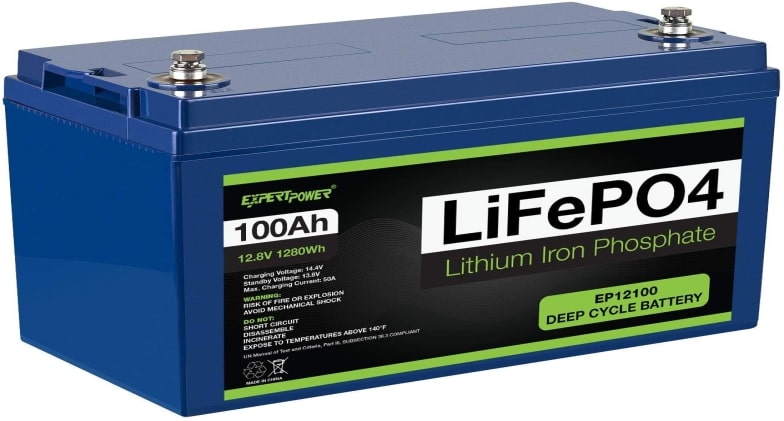Are LiFePO4 and lithium-ion the same thing?
Definitely not! In comparison to lithium-ion polymer batteries, the LiFePO4 battery has four times the cycle life.
Is LiFePO4 a good battery?
To begin with, LiFePO4 batteries outperform typical batteries in terms of efficiency. There will be no worries about running out of juice because they are so light. You can only use around half of the lead-acid batteries’ capacity. The battery will then be ruined.) To sum it up, yeah, LiFePO4 batteries are excellent.
Do LiFePO4 Batteries Catch Fire?
In terms of lithium batteries, LiFePO4s are the safest, as they won’t catch fire or even overheat. Batteries don’t catch fire even when punctured. Compared to other lithium batteries, this is a huge improvement.
Compared to lithium-ion, is LiFePO4 better?
In terms of cycle life and safety, the LiFePO4 battery is superior to lithium-ion. In contrast to lithium-ion batteries, which can overheat and even catch fire, LiFePO4 batteries do not. This is an important advantage.
Why are LiFePO4 Batteries so expensive?
LiFePO4 batteries are more expensive up front, but they end up saving you money in the long run because of their long lifespan. Materials utilized in their construction are more expensive than those used in other structures. They’re still more popular than other batteries, though. Why? Because of the numerous advantages, LiFePO4 provides over other types of batteries. Because they’re lighter than lead-acid and other battery kinds, for example, You don’t have to worry about them wearing out or breaking down because they’re so durable and low-maintenance.
Is LiFePO4 a Lipo?
No. Lipo and Lifepo4 are both lithium chemistries, although there are significant differences between the two.
What are the applications of LiFePO4 Batteries?
Using LiFePO4 batteries is similar to using standard lead-acid, AGM, or other battery types. Bass boats and other water toys can be powered by them. RVs are also an option. As well as solar-powered devices and more specialized transportation.
When compared to AGM or lead-acid, does LiFePO4 pose a higher risk?
Nope. It’s a lot more secure. One of the main reasons for the popularity of LiFePO4 batteries is that they don’t generate any harmful gases. And unlike many other batteries, they don’t leak sulfuric acid (like lead-acid.) As previously said, they do not become too hot or catch fire.
Can I leave my LiFePO4 battery charging?
LiFePO4 batteries that include battery management systems will avoid overcharging. All of our Ionic batteries come with built-in battery management systems.
How long are LiFePO4 batteries expected to last?
LiFePO4’s long life expectancy is one of its most significant advantages, if not its most important advantage. It is estimated that our lithium batteries will endure for about 5,000 cycles. As a rule of thumb, it lasts for around a decade or so, depending on how frequently it’s used. Our LiFePO4 batteries can still operate at 70 percent capacity after 5,000 cycles. And even better, you can discharge up to 80% of your debt without a hitch. Discharging a lead-acid battery past 50% usually results in the battery gassing out.

